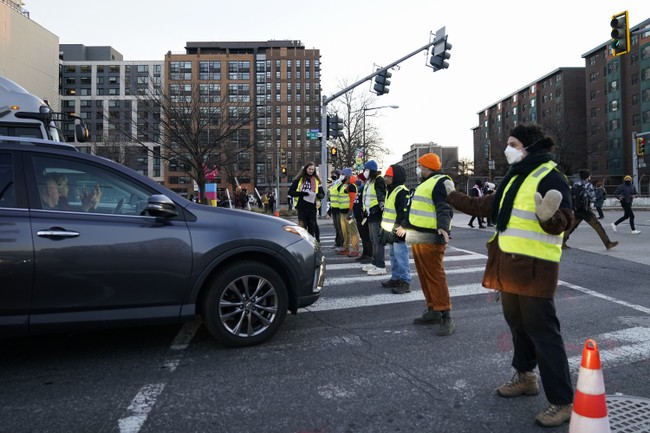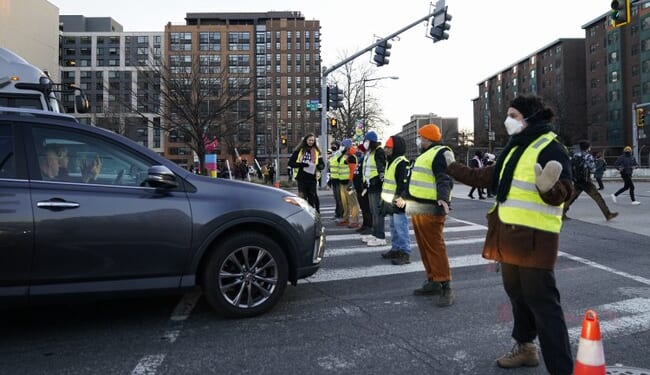
At 3:00 AM on Saturday morning, Washington, D.C. police were lined up and prepared to enter the campus of George Washington University to clear anti-Israel protesters from a tent encampment they had built.
However, according to the Washington Post, the police got the order to stand down from their superiors. Two sources told the Post the cops were “worried about the optics of moving against a small number of peaceful protesters, according to two officials familiar with the talks.”
The office of Mayor Muriel Bowser was also involved in the decision for the cops to back off.
The Post reported that “city officials told their university counterparts they wanted to avoid images of violent altercations between police and protesters flashing across TV screens across the country.”
The university is on private property and the protesters have no right to be on it. The school refused to comment as did the D.C. police.
Chuck Wexler, the executive director of the Police Executive Research Forum, had never seen anything like it. The Forum advises local police departments on “best practices.” Wexler thinks the university should show the police “a compelling reason” for them to intervene,
“If these are peaceful demonstrators and MPD says, ‘Look, we’ll stand by. We’re not leaving, we’re simply saying at this moment we don’t see a compelling need to come in,’ then that’s okay,” he said.
If Jewish students are too frightened to cross the campus, isn’t that a “compelling reason”?
In D.C., the protesters are on private university property, and absent seeing a crime being committed, D.C. police said they need to be invited to take action on the campus. To do that, school officials would have to declare the demonstrators illegal trespassers who refuse to leave, or cite other possible crimes.
The D.C. officials who described the decision not to break up the George Washington University encampment said they had flashbacks to June 2020, when images of mostly peaceful protesters being forcefully shoved out of Lafayette Square by Park Police officers with batons and chemical irritants made national news. The officials said city leaders suggested alternatives to force an end the demonstration at George Washington University, but they did not describe what those were.
Meanwhile, the University has taken some action on its own. The school said in a statement on Friday night demonstrators “violated several university policies and were trespassing” and several students have been temporarily suspended. “The university also said that any student who remains in University Yard may be placed on temporary suspension and administratively barred from campus. Several students have already been notified of their suspensions.”
The pro-Palestinian protesters “said that the “Administrators are actively working to punish students for speaking up against the oppression of Palestinians,” they wrote in the post.
WTOP:
While many protesters have abandoned the encampment on the yard, WTOP’s Linh Bui saw 15 tents in the new H Street encampment and over 50 protesters waking up on the street Saturday morning.
The Hatchet, the GW University student newspaper, reported that the number of demonstrators outside the yard swelled to somewhere between 200 and 250 around 11 p.m. Friday night on H Street, but dwindled to around 100 in the early morning hours on Saturday.
Most protesters, mix of students and nonstudents, moved onto the street and surrounding area Friday afternoon — taking their bags and tents with them — after university workers put up metal fencing around University Yard. The student news source reported that there were far less demonstrators in the original encampment as of Saturday morning.
Encouraging students to protest by not arresting them is going to lead to those “bad optics” the police department is so terrified of.












